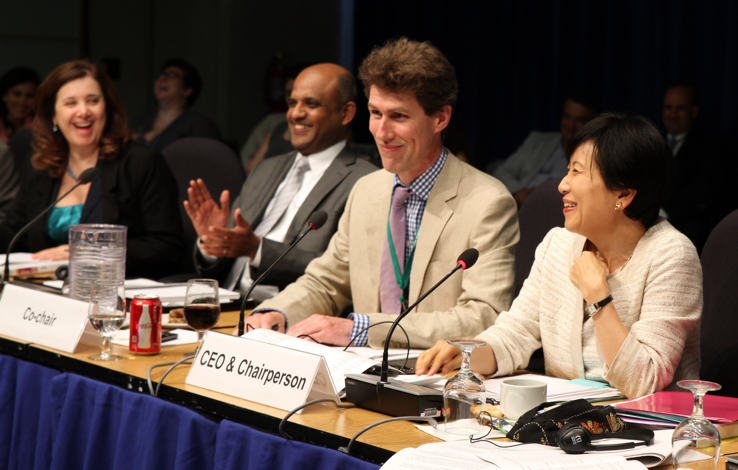The Global Environment Facility (GEF) has authorized the use of up to US$10 million to fund an early action pre-ratification programme for the Minamata Convention.
The decision was taken at the 44th Meeting of the GEF Council (GEF 44), which also adopted a Work Program amounting to US$369.82 million, comprising 48 projects on biodiversity, climate change, international waters, land degradation, persistent organic pollutants (POPs), as well as multi-focal area projects.
 20 June 2013: The Global Environment Facility (GEF) has authorized the use of up to US$10 million to fund an early action pre-ratification programme for the Minamata Convention. The decision was taken at the 44th Meeting of the GEF Council (GEF 44), which also adopted a Work Program amounting to US$369.82 million, comprising 48 projects on biodiversity, climate change, international waters, land degradation, persistent organic pollutants (POPs), as well as multi-focal area projects.
20 June 2013: The Global Environment Facility (GEF) has authorized the use of up to US$10 million to fund an early action pre-ratification programme for the Minamata Convention. The decision was taken at the 44th Meeting of the GEF Council (GEF 44), which also adopted a Work Program amounting to US$369.82 million, comprising 48 projects on biodiversity, climate change, international waters, land degradation, persistent organic pollutants (POPs), as well as multi-focal area projects.
GEF 44 took place at World Bank headquarters in Washington, DC, US, on 18-20 June 2013.
As the financial mechanism of the Minamata Convention on Mercury upon entry force, the GEF Secretariat noted that the Convention will be open for signature in October 2013. The Secretariat highlighted that GEF is requested to fund activities in the interim period between signature and entry into force, including in the immediate period after the Diplomatic Conference to be held in Minamata, Japan, in October 2013.
In this context, the adopted decision allocates US$10 million to fund an early action pre-ratification programme for the Convention during the remainder of the fifth GEF replenishment (GEF 5). The Secretariat explained to Council members that this amount had been calculated through joint efforts by the mercury “non-bureau,” the interim Secretariat for the Minamata Convention, and the GEF Secretariat.
During the meeting, Fernando Lugris, Chair of the Intergovernmental Negotiating Committee (INC) on Mercury, appealed to the Council to consider and agree on ways to provide “new, additional, adequate and predictable” financial support to the Minamata Convention, both in the interim period and throughout implementation. The Council welcomed the invitation from the INC on Mercury to be the key element of the Financial Mechanism.
The GEF Council was preceded by consultations with civil society organizations (CSOs) on 17 June and followed by the 14th meeting of the Council for the Least Developed Countries Fund (LDCF) and Special Climate Change Fund (SCCF). Key decisions of the meeting addressed: relations with conventions and other international institutions; the progress report from the Director of the GEF Evaluation Office; the annual monitoring review; the report of the selection and review committee; work programme and budget of the GEF Evaluation Office; the GEF Business Plan and Corporate Budget for the 2014 fiscal year; the Fifth Overall Performance Study and Management Response (OPS5); and the work programme.
On the GEF2020 Strategy, participants heard a keynote address from Johan Rockström, Executive Director of the Stockholm Resilience Centre at Stockholm University, which highlighted that the present generation is the first to have bold scientific knowledge on the perverse effects of environmental degradation, while noting that environmental degradation aggravates social instability.
The Council also commended Thomas Lovejoy, outgoing chair of The Scientific and Technical Advisory Panel (STAP), and welcomed Rosina Bierbaum as the incoming chair. It was decided that Mexico will host the fifth Assembly of the GEF, while India will host the next meeting on the GEF 6 replenishment, to take place in September 2013. [Documents on Minamata Convention] [IISD RS Meeting Coverage]